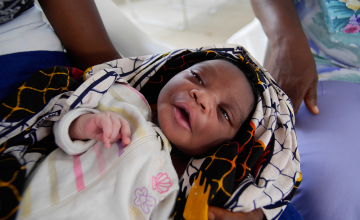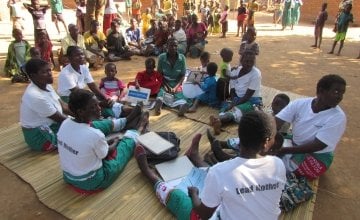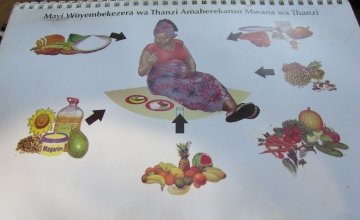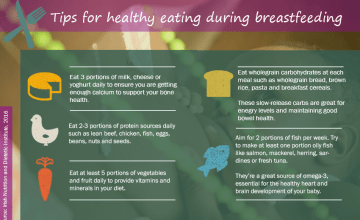
Read our 2023 annual report

Knowledge Hub
World Breastfeeding Week 2016: Why breast is best in the fight against inequality

This World Breastfeeding Week, we’re celebrating the power of women to create sustainable, positive change across the globe.
In this article, we take a look at the positive impact of breastfeeding on the developing world, healthy eating tips for breastfeeding mothers and some delicious free recipes for those who are practicing complementary feeding.
Importance of breastfeeding
Did you know that breastfeeding significantly improves the health, development and survival of infants and children? And it’s not just baby who benefits – mothers who breastfeed experience improved health and wellbeing in both the short-term and long-term.
At Concern, we respect the choices made by mothers: whether to breastfeed at all, whether to do so in combination with formula feeding, and how long to breastfeed for. These decisions are each influenced by the unique circumstances surrounding a mother and her baby.
In the developing world, however, contamination of artificial milks or infant formulas due to unclean water and poor hygiene conditions can quickly lead to malnutrition, illness and death in infants. In a world where close to 7 million children under the age of five die each year – 45% from malnutrition – the promotion of breastfeeding over potentially unhygienic alternatives can be critical.
Our approach to maternal health
Breastfeeding is a great equaliser in both the developing and developed world: providing a child with a strong start in life while empowering mothers in the care of their child. Good nutrition is critical in the first 1000 days of a child’s life. It positively impacts on their physical and mental development, immunising them against chronic illness and preventing problems like stunting or wasting.
Our maternal care groups are one of the ways we try to support nutrition in the first 1000 days in the countries in which we work. They are a great source of information for mothers and caregivers, enabling them to make informed decisions about their children’s health and dietary needs.

The Tikondane maternal care group in Mchinji in Malawi (pictured above) consists of twelve women. Under the guidance of ‘lead mothers’, the group meets twice a month to discuss the four key areas of focus that are essential to improving maternal health in their community: sanitation and hygiene, exclusive breastfeeding, complementary feeding and maternal nutrition.
Concern designed these modules to help communities educate women in the importance of clean water, healthy diet and personal hygiene. There is a strong emphasis on the importance of breastfeeding and how to eventually compliment this with nutritious foods.

The ultimate goal is to ensure the children born here have an equal start to any child born anywhere — and that their little brains and bodies are not disadvantaged from the get-go.
The Tikondane maternal care group reported significant improvements in hygiene and nutrition amongst mothers in the group. Positive change was also seen in the attitudes of fathers, who were encouraged to challenge gender roles by attending ante natal appointments, playing an active role in the life of their children and carrying out household chores.
Healthy eating tips for breastfeeding mums
From Kenya to Kerry, a balanced and nutritious diet is important for mothers who have decided to breastfeed. Below are some tips from the Irish Nutrition and Dietetic Institute.

Complementary feeding recipes
And when your baby’s ready to move onto the next step, you can start introducing them to solid foods. This is called complementary feeding or weaning. This is when milk alone (breast or formula) is no longer enough to meet the nutritional needs of the infant. Complementary foods should be added to the diet of the child at about 6 months (26 weeks).

Adding solid food to your baby’s diet is an important step in your baby’s development. Take time to explore new flavours and textures together. To begin with, the amount of food your baby takes is less important than getting them used to the idea of eating as they will still get the nutrients they need from breast or infant formula milk.
Download our delicious healthy recipes





